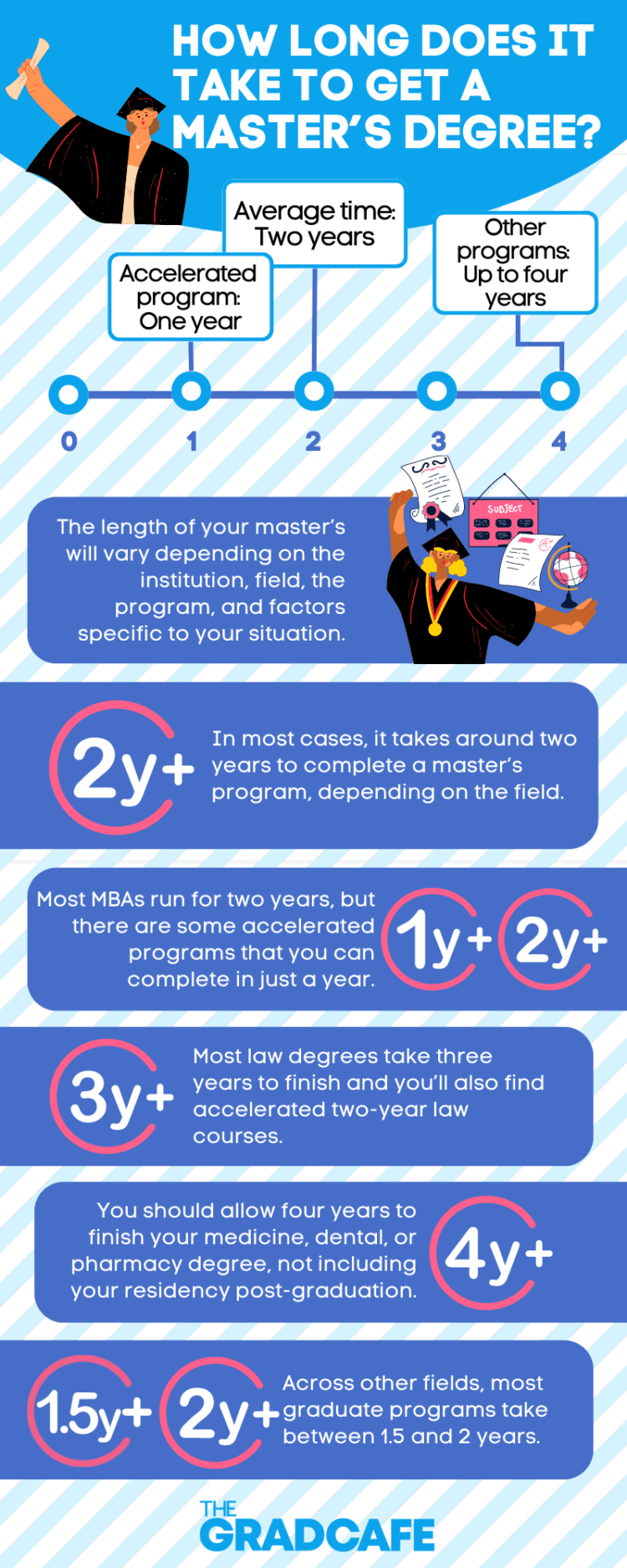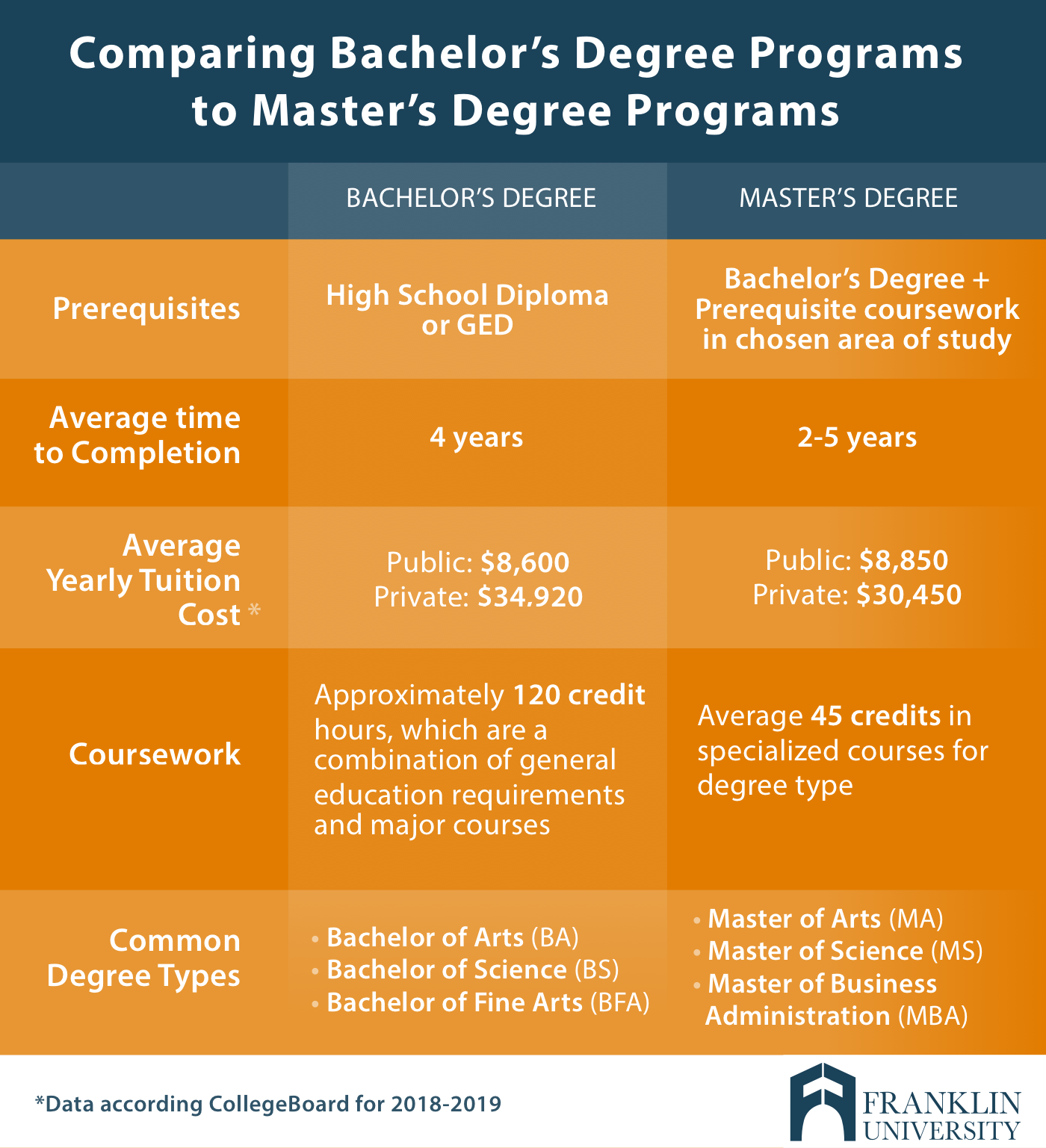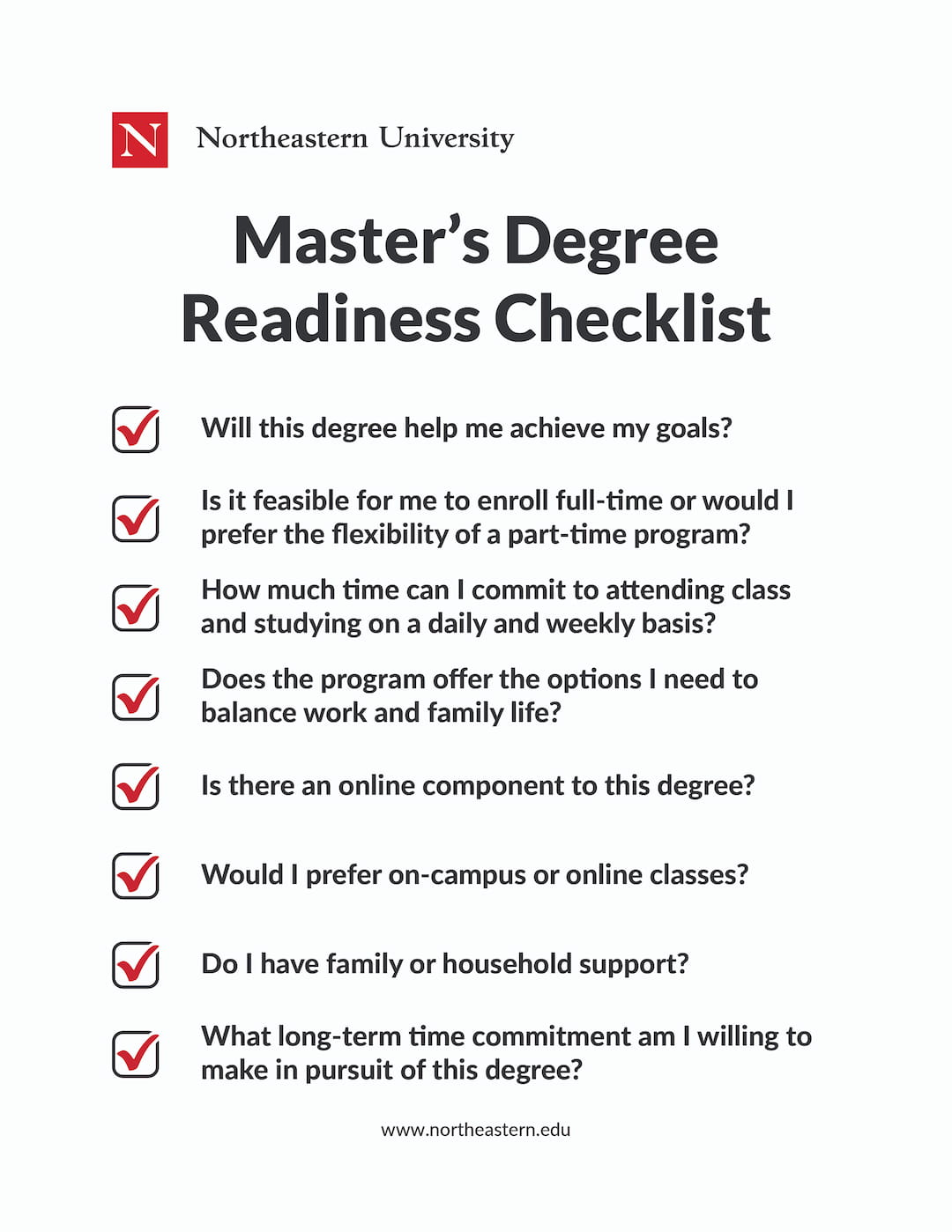How Long To Get Masters Degree
How Long To Get Masters Degree: Your Ultimate Guide
Thinking about taking the leap and pursuing a Master's degree? That's fantastic! Whether you're looking to boost your salary, switch careers, or become an expert in your field, a Master's degree is a powerful credential. But before you submit that application, one crucial question looms large: How long to get Masters degree?
The short answer is: it depends. Unlike a Bachelor's degree, where four years is the widely accepted norm, the timeline for a Master's program is incredibly flexible. It can range from as little as 12 months to upwards of five years. This guide will break down the variables so you can plan your academic journey precisely.
The Standard Timeline: Full-Time vs. Part-Time Study
The biggest factor influencing your completion time is your enrollment status. Are you diving in headfirst, or are you balancing school with a job and family commitments? Your choice here will determine whether you finish in time for two Christmases or five.
The Full-Time Fast Track (2 Years or Less)
If you commit to full-time study, meaning you take a heavier course load each semester and likely dedicate yourself solely to your studies, you can expect a quick completion. Most conventional Master's programs require 30 to 60 credit hours.
For most non-STEM degrees (like an MBA, M.Ed., or standard M.A.), the typical full-time timeline is 1.5 to 2 years. Programs focused on business or public administration often run on an accelerated 12-to-18-month schedule, especially if they forgo summer breaks.
While this track is demanding, it's often the best route if you want to jump back into the job market quickly and maximize your return on investment. You'll be living and breathing academics for those two years, but you'll come out the other side with your shiny new degree in hand.
The Part-Time Pace: Balancing Life and Learning (3-5 Years)
Choosing to study part-time is an increasingly popular option, particularly for working professionals. You attend fewer classes per semester, reducing the weekly workload but extending the overall time needed to accumulate the required credits.
If you are wondering how long to get Masters degree while working 40 hours a week, expect a timeline of 3 to 5 years. Some universities enforce a maximum time limit—often six or seven years—to complete the degree, so make sure you check your specific program requirements to avoid losing credits.
The beauty of part-time study is the flexibility, allowing you to apply your learning directly to your current job, but it requires significant discipline to stay motivated over a longer period.
Factors That Heavily Influence Your Master's Duration
Beyond the simple choice of full-time or part-time, several elements inherent to the degree itself can dramatically change the expected completion date.
Program Type and Degree Structure (Thesis vs. Non-Thesis)
The biggest structural divider in Master's programs is the capstone requirement. Many research-heavy degrees require a full thesis, while professional degrees often require comprehensive exams or a professional project.
- Coursework-Only Track (Non-Thesis): This track focuses entirely on taking classes and perhaps a final project or comprehensive exam. It is generally the fastest path, adhering closely to the 1.5-to-2-year timeline.
- Thesis Track: This involves several semesters of research, writing, and defending a lengthy, original scholarly work. While the coursework may take two years, the thesis writing process often adds an extra six months to a full year, especially if revisions are necessary.
If your goal is speed, ask programs whether they offer a non-thesis option when determining how long to get Masters degree.
Subject Area and Specific Field Requirements
Some fields simply require more groundwork than others, which impacts the credit load and length. For example, a Master of Fine Arts (MFA) in creative writing might take three full years because the curriculum is heavily focused on workshop time and project completion, rather than traditional exams.
Similarly, many Master of Science (M.S.) degrees, particularly those in engineering or laboratory sciences, often require substantial lab work and research apprenticeships, pushing the total duration closer to 2.5 or 3 years even for full-time students.
Acceleration Options: Fast-Track Programs and Dual Degrees
If you are an undergraduate student planning ahead, you might be able to drastically reduce your timeline through specific program structures. Many universities offer "4+1" programs, allowing exceptional students to complete both their Bachelor's and Master's degrees in just five years.
This acceleration is possible because students often take graduate-level courses during their senior year of undergrad, which count toward both degrees, effectively shaving a full year off the graduate phase. This is arguably the fastest answer to how long to get Masters degree if you start planning early.
The Reality Check: Unexpected Delays and How to Avoid Them
Even with the best planning, life happens. It's important to be realistic about potential roadblocks that could stretch your completion date beyond the university's published schedule. These are common reasons why Master's students go into "overtime":
- Advisor Issues: If you are required to write a thesis, poor communication or delays in feedback from your academic advisor can easily add months to your research timeline.
- Financial Constraints: Needing to take a semester off to work more hours, or dropping from full-time to part-time status to save money, is a very common cause of delay.
- Course Availability: Especially for highly specialized electives or courses required for specific concentrations, if a course isn't offered during a certain semester, you might have to wait an entire year to take it.
- The Thesis Struggle: Often, students underestimate the depth and scope of independent research. Hitting research snags or needing extensive statistical analysis can significantly push back your graduation date.
To keep on track, communicate proactively with your advisor, map out your course plan from day one, and treat your thesis (if applicable) like a job with strict deadlines.
Conclusion: So, How Long To Get Masters Degree?
Ultimately, the timeline is highly personal. If you are pursuing a full-time, non-thesis professional degree like an MBA or certain M.A. programs, you can likely complete your studies in 18 to 24 months. For those balancing work, or pursuing research-heavy M.S. degrees requiring lab work and a thesis, the average time stretches to 2.5 to 3 years.
Part-time students who need maximum flexibility should expect 3 to 5 years. When asking how long to get Masters degree, remember that diligence, strong communication with your department, and a commitment to sticking to your defined timeline are the keys to a timely graduation.
Frequently Asked Questions (FAQ)
- Can I get a Master's degree in one year?
- Yes, but it is rare and demanding. Some intensive, non-thesis programs (like certain Master of Finance or specialized MBA programs) are structured as 12-month full-time degrees. These programs typically require year-round study, including summer semesters, and offer no breaks.
- What is the maximum time allowed to finish a Master's program?
- Most universities impose a statute of limitations, typically ranging from five to seven years from the date of initial enrollment. This is done to ensure the knowledge you gain remains relevant and current when you graduate.
- Does the format (online vs. in-person) affect how long it takes?
- Not necessarily. Online and in-person programs generally require the same number of credits. However, online programs often offer greater flexibility in scheduling and sometimes allow for continuous enrollment (no summer break), which can slightly accelerate the pace for dedicated students.
- How many credits are typically required for a Master's degree?
- Most Master's programs require between 30 and 60 credit hours. Professional degrees (like MBAs) usually sit on the lower end, while research-intensive programs or licensed fields (like Counseling or Library Science) might require closer to 45–60 credits.
How Long To Get Masters Degree
How Long To Get Masters Degree Wallpapers
Collection of how long to get masters degree wallpapers for your desktop and mobile devices.

Serene How Long To Get Masters Degree Design Concept
Transform your screen with this vivid how long to get masters degree artwork, a true masterpiece of digital design.

Exquisite How Long To Get Masters Degree Capture for Desktop
This gorgeous how long to get masters degree photo offers a breathtaking view, making it a perfect choice for your next wallpaper.

Breathtaking How Long To Get Masters Degree Scene for Your Screen
Transform your screen with this vivid how long to get masters degree artwork, a true masterpiece of digital design.

Lush How Long To Get Masters Degree Landscape Illustration
This gorgeous how long to get masters degree photo offers a breathtaking view, making it a perfect choice for your next wallpaper.

Beautiful How Long To Get Masters Degree Scene Photography
Transform your screen with this vivid how long to get masters degree artwork, a true masterpiece of digital design.

Lush How Long To Get Masters Degree Wallpaper Digital Art
Find inspiration with this unique how long to get masters degree illustration, crafted to provide a fresh look for your background.

Beautiful How Long To Get Masters Degree Abstract for Desktop
Experience the crisp clarity of this stunning how long to get masters degree image, available in high resolution for all your screens.

Beautiful How Long To Get Masters Degree Abstract for Your Screen
Explore this high-quality how long to get masters degree image, perfect for enhancing your desktop or mobile wallpaper.

Captivating How Long To Get Masters Degree Moment Collection
A captivating how long to get masters degree scene that brings tranquility and beauty to any device.

Vivid How Long To Get Masters Degree Artwork Art
Experience the crisp clarity of this stunning how long to get masters degree image, available in high resolution for all your screens.

Breathtaking How Long To Get Masters Degree Design in 4K
Transform your screen with this vivid how long to get masters degree artwork, a true masterpiece of digital design.

Captivating How Long To Get Masters Degree Wallpaper Concept
This gorgeous how long to get masters degree photo offers a breathtaking view, making it a perfect choice for your next wallpaper.

Dynamic How Long To Get Masters Degree Picture Collection
A captivating how long to get masters degree scene that brings tranquility and beauty to any device.

Serene How Long To Get Masters Degree Image Digital Art
Transform your screen with this vivid how long to get masters degree artwork, a true masterpiece of digital design.

Breathtaking How Long To Get Masters Degree Scene in HD
Discover an amazing how long to get masters degree background image, ideal for personalizing your devices with vibrant colors and intricate designs.

Exquisite How Long To Get Masters Degree Artwork Art
A captivating how long to get masters degree scene that brings tranquility and beauty to any device.

Detailed How Long To Get Masters Degree Scene Illustration
Experience the crisp clarity of this stunning how long to get masters degree image, available in high resolution for all your screens.

Serene How Long To Get Masters Degree Abstract in 4K
Explore this high-quality how long to get masters degree image, perfect for enhancing your desktop or mobile wallpaper.

Breathtaking How Long To Get Masters Degree Scene for Desktop
Experience the crisp clarity of this stunning how long to get masters degree image, available in high resolution for all your screens.

Dynamic How Long To Get Masters Degree Image Illustration
Immerse yourself in the stunning details of this beautiful how long to get masters degree wallpaper, designed for a captivating visual experience.
Download these how long to get masters degree wallpapers for free and use them on your desktop or mobile devices.
0 Response to "How Long To Get Masters Degree"
Post a Comment